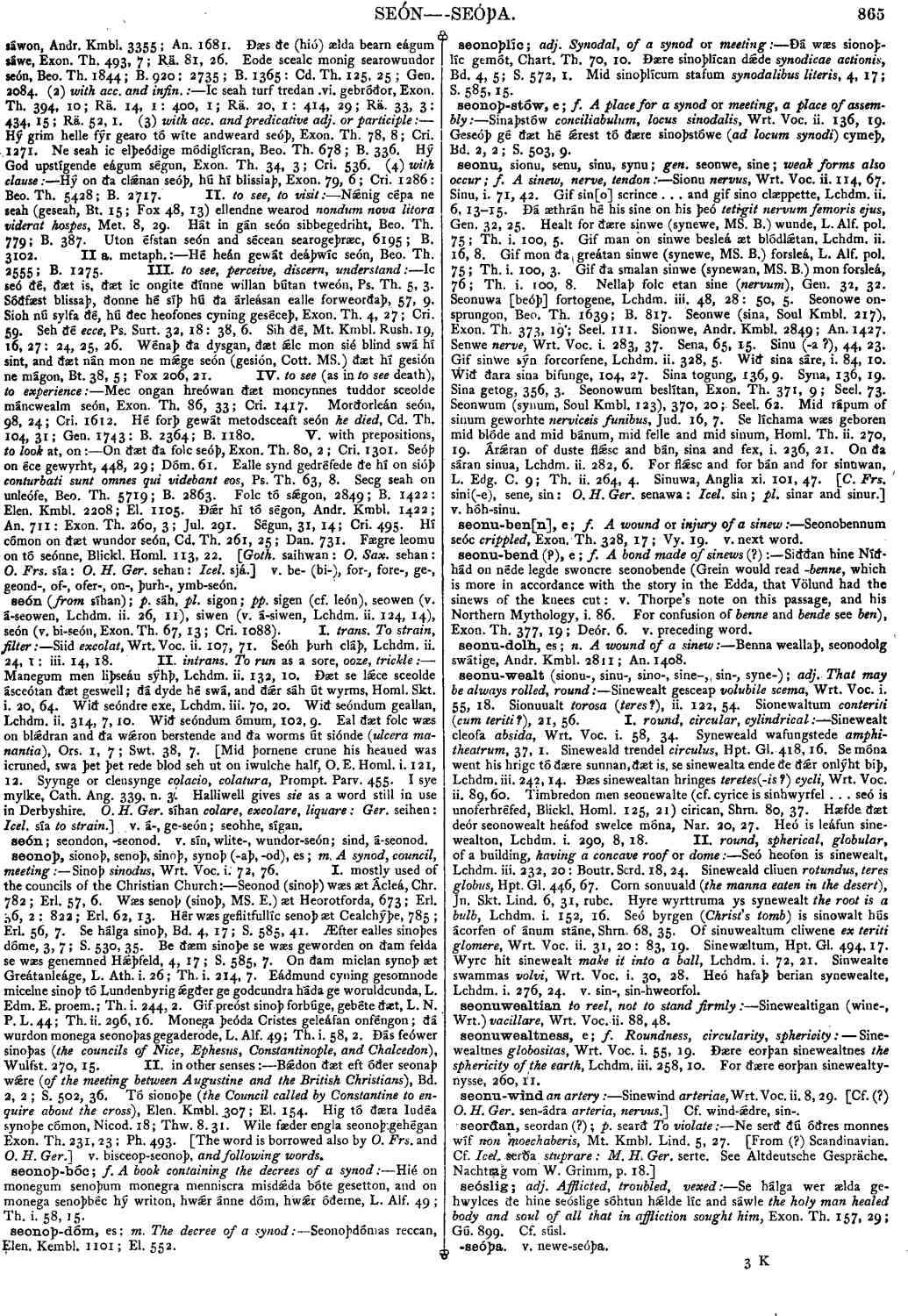seón
- verb [ strongcontracted ]
- Lchdm. ii. 26, 11
-
Siid
excolat,
- Wrt. Voc. ii. 107, 71.
- Seóh þurh cláþ. Lchdm. ii. 24, I : iii. 14, 18.
- Manegum men liþseáu sýhþ. Lchdm. ii. 132, 10.
-
Ðæt se lǽce sceolde ásceótan ðæt geswell; ðá dyde hé swá, and ðǽr sáh út wyrms,
- Homl. Skt. i. 20, 64.
-
Wið seóndre exe,
- Lchdm. iii. 70, 20.
-
Wið seóndum geallan,
- Lchdm. ii. 314, 7, 10.
-
Wið seóndum ómum,
- 102, 9.
-
Eal ðæt folc wæs on blǽdran and ða wǽron berstende and ða worms út siónde (
ulcera manantia
).- Ors. 1, 7 ; Swt. 38, 7.
Bosworth, Joseph. “seón.” In An Anglo-Saxon Dictionary Online, edited by Thomas Northcote Toller, Christ Sean, and Ondřej Tichy. Prague: Faculty of Arts, Charles University, 2014. https://bosworthtoller.com/27502.
Checked: 0